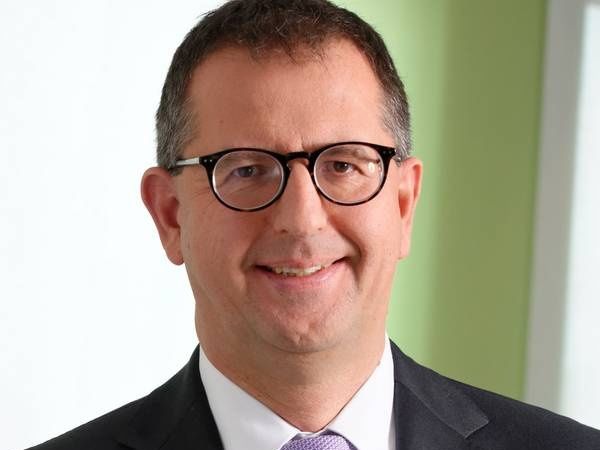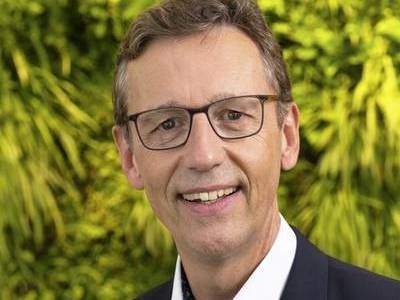Produce more and more efficient ammonia
The Meyer-Galow Award for Business Chemistry 2023 goes to Dennis Lippmann
Advertisement
Dr. Dennis Lippmann, President of thyssenkrupp Uhde, Houston/USA, will receive the Meyer-Galow Award for business chemistry 2023 on November 29th. The prize from the foundation of the same name is hosted by the German Chemical Society (GDCh) and is endowed with 10,000 euros. Dr. Lippmann and his team have developed and successfully launched a process on the market that can significantly increase the capacity of ammonia plants and improve energy efficiency. The uhde® two-print process avoids risks that arise when scaling up other processes. The awardee receives the award at a ceremony at thyssenkrupp Uhde in Dortmund from GDCh President Professor Dr. Karsten Danielmeier.

Dennis Lippmann
thyssenkrupp Uhde
Ammonia has long been one of the most widely produced chemicals - especially for fertilizer. Today, the chemical combination of nitrogen and hydrogen is also discussed as an energy source and hydrogen transport medium.
An industrial plant produced up to 2,000 tons of ammonia per day at the turn of the millennium. Simply scaling up such a plant to increase yield is associated with risks, as high-pressure equipment such as the synthesis gas compressor with steam turbine and ammonia reactor would be required on unreferenced scales. The excellent dual-pressure process reduces such risks by shifting the necessary additional performance to less critical equipment. Not only can new systems be built up to 65% larger without increasing the size of critical high-pressure equipment, but existing systems can also be expanded in capacity. The new process also enables a reduction in energy consumption by up to 4%.
GDCh honors the market launch of this process with the Meyer-Galow Award for Business Chemistry . In 2006, the SAFCO-IV plant in Saudi Arabia, the first corresponding plant with a capacity of 3,300 tons per day, went into operation - today there are already five, another is under construction and the next one is being planned. The process uses a fresh gas reactor that is connected between the two housings of the synthesis gas compressor. At 110 bar, nitrogen and hydrogen partially convert into ammonia, which is then frozen and condensed. The remaining synthesis gas is compressed to 200 bar and converted into ammonia in the existing system's circuit. The critical size of the synthesis gas compressor therefore requires less drive power in the dual-pressure process.
The awardee Dr. Dennis Lippmann is CEO and President of thyssenkrupp Uhde in the USA. Before joining in 2015, he worked as Vice President of KBR's Syngas and Fertilizer Division. He previously held various positions at Uhde in Germany and the USA from 1995 to 2013. Dr. Lippmann completed his chemical engineering studies at the Clausthal University of Technology in 1995 with a doctorate

































































